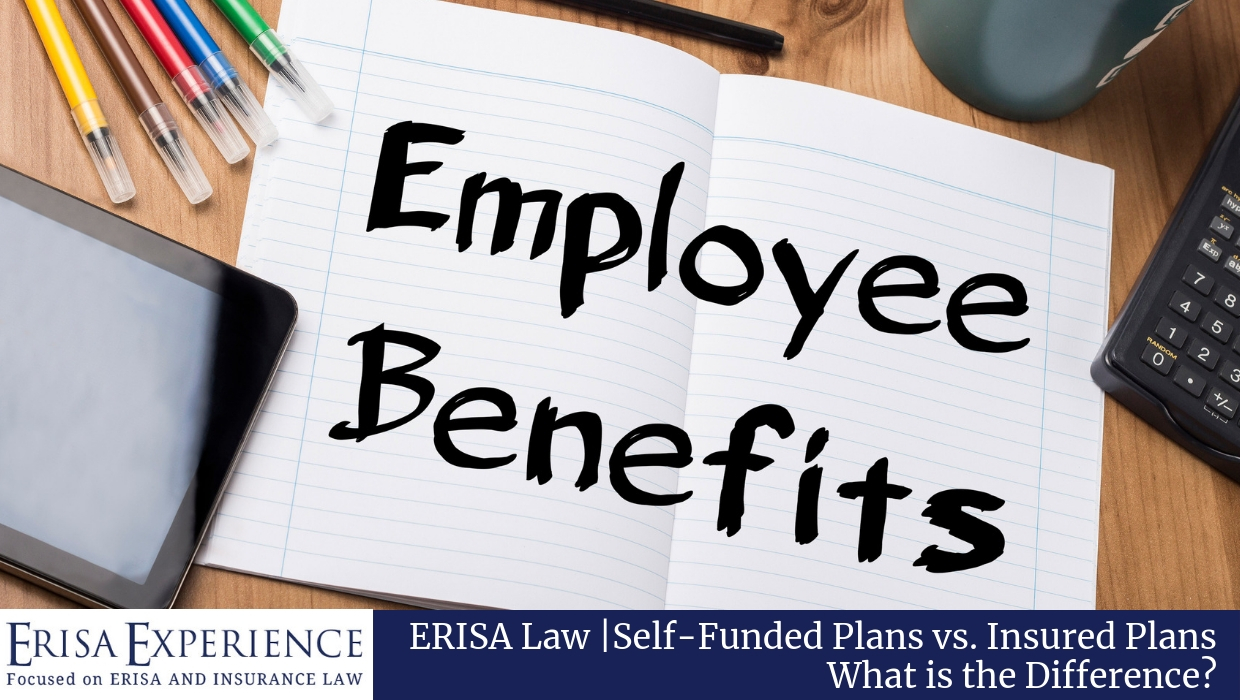
If a person is covered by an ERISA governed employee benefit plan through a private employer, chances are that the plan is either self-funded or insured. What is the difference?
A self-funded plan means that the benefit plan is funded by an individual’s employer. In other words, benefits are paid through a plan which is funded by employer contributions. By way of example, if an individual works for ABC Corporation and ABC Corporation self-funds its plans, then any benefit claim payments will issued with funds that come directly from ABC Corporation.
Conversely, an insured plan is an employee benefit plan that is sponsored by an employer, but benefits are paid by an insurance company. Using the above example, if ABC Corporation sponsors a long-term disability plan for its employees, it will contract with XYZ Insurance Company to provide and pay benefits. Consequently, any benefit claim payments will be paid by XYZ Insurance Company.
For all intents and purposes, there is not a lot of difference between a self-funded plan and an insured plan. Legally, however, self-funded plans can be a bit harder to deal with when it comes to denied claims and lawsuits.
If you have a denied benefit claim (health insurance, life insurance, short term disability, or long term disability), please do not hesitate to contact me at 864-242-6200 or email.
|
864.242.6200
|
|
25 Mills Avenue
Greenville, SC 29605 |
|
864.233.0290
|